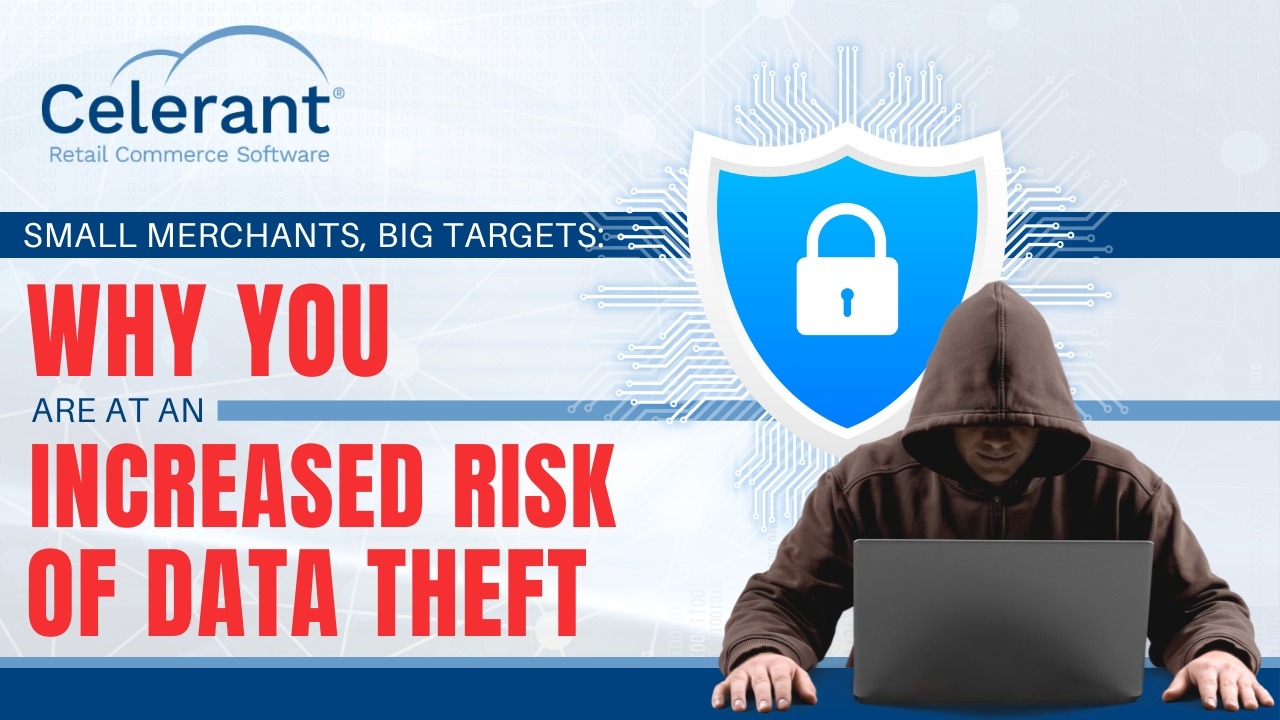Blog
Small Merchants, Big Targets: Why You Are at An Increased Risk Of Data Theft?
August 7, 2018 / 6 minute read / By Michele Salerno

Blog

Imagine your customers’ info, like emails and usernames, exposed in a giant online leak. Frightening, right? Well, that’s the harsh reality for many SMB retailers. While you might think big companies are the main targets, hackers often see small businesses as easy prey.
Remember the huge Under Armour data breach case in 2018? Over 150 million people using their fitness app ‘MyFitnessPal’ got their email and usernames stolen, even though passwords were encrypted. That’s a huge blow to trust and brand reputation and can cost you big.
Data breaches seem bigger and bolder every day. Remember Equifax, Facebook, and even Ticketmaster? Those are the giants that made headlines, but the truth is, small businesses like yours are twice as likely to be hacked.
Why, you ask?
Well, big companies have massive security teams, but SMBs often lack the resources or time to put up strong defense systems. And hackers see this as an opportunity, and the consequences can be brutal. Damage control, reputation repair, notifying customers, refunding money – it all adds up. A $500,000 hack could shut down your business for good.
One data breach can mean lost trust and lost business.
So, what can you do?
Protecting your customers’ data isn’t just good business – it’s your responsibility. Don’t let your business become the next prey. Take action today and build a security shield around your business.
Keeping your customers’ data safe is a top priority for smart retailers. Luckily, new security protocols like tokenization are making it easier than ever to protect their information.
Here’s how it works: instead of storing credit card numbers and personal details in your point-of-sale system, tokenization swaps them for a secret code, a unique token, during every single purchase.
Now this works great for processing payments, but it’s gibberish to anyone trying to steal it. So even if a hacker cracks your system, they would only find these nonsensical codes, leaving your customers’ real information safe and untouched.
To help you better understand how it works, think of it this way: you wouldn’t keep your house keys hanging on the front door, right? Tokenization is like putting your keys safe in a hidden vault, that’s accessible only when you need it, and locked up tight the rest of the time.
So, for smart retailers like you, big or small, tokenization is a simple yet powerful way to keep your customers’ data safe from unauthorized access.
Rather than hiding the customer data through tokenization, point-to-point encryption, or P2PE, secures the card data as it is entered into the POS device.
You can think of P2P3 as an invisible force field around your payment processing data. It starts working the moment a card is tapped or swiped at your POS device, instantly converting the information into a secret code.
Here’s how it protects your retail business:
Using an all-in-one SaaS retail system not only helps streamline your workflow by centralizing your operations but also minimizes the duplication of effort and reduces the risk of errors. This not only saves time but also ensures a seamless and efficient process.
Choosing the right POS provider is detrimental to the safety of your data. Look for one who:
At Celerant, we have helped thousands of retailers across the U.S. level up their security game with our powerful all-in-one SaaS-based Retail System. If you are interested in exploring how we can connect the dots for your business too, see our software in action.